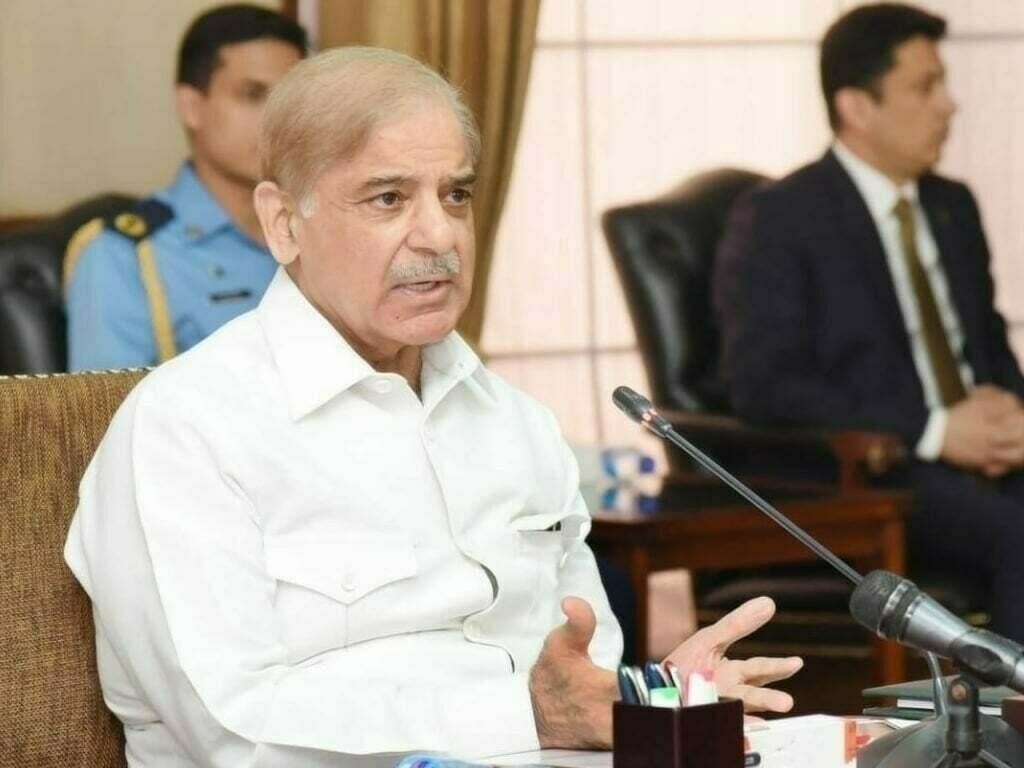Mohsin Siddiqui (Chief Reporter)
Finance Minister Muhammad Aurangzeb has highlighted the need for substantial reforms in the structure and functioning of five key ministries. Addressing a press conference in Islamabad, he stated that the ministries of Kashmir and Gilgit Baltistan, SAFRON, Industries and Production, IT and Telecom, and Health have been shortlisted for rightsizing. The final decision on these reforms will be made by Prime Minister Shahbaz Sharif.
Aurangzeb emphasized that the government’s primary focus is to reduce the financial burden on the lower-income class. This priority aligns with ongoing reforms in the Federal Board of Revenue (FBR), where weekly meetings are chaired by Prime Minister Sharif to ensure continuous progress.
The finance minister expressed his gratitude to the Chief Ministers of all four provinces for their support of the government’s tax reforms agenda. He called for the inclusion of the agricultural sector in the taxation regime, stating that without incorporating untaxed and under-taxed communities, achieving economic stability through certainty and ease of tax collection would be impossible.
Aurangzeb highlighted the government’s efforts to facilitate the business community, noting that claims worth 68 billion rupees have been refunded so far. He announced the introduction of a centralized system for issuing tax notices, with field formations authorized to collect taxes accordingly. This centralized approach aims to streamline the tax collection process and reduce discrepancies.
Discussing tax evasion and fraud, Aurangzeb revealed that the government has identified a potential 600 billion rupees in uncollected taxes, of which one billion rupees has been recovered to date. Additionally, customs misclassification has uncovered tax amounts ranging from 50 to 200 billion rupees.
The finance minister urged the media to launch a campaign against the untaxed and under-taxed communities, emphasizing the critical role of tax compliance in the nation’s economic stability. He also outlined the government’s efforts to simplify tax processes to facilitate both business owners and salaried individuals. The goal is to create a system where taxpayers can respond easily without the need for external tax consultants.
Aurangzeb’s remarks underscore the government’s commitment to comprehensive tax reforms. He highlighted the need for tax legislation that includes the agricultural sector, which has historically been under-taxed. The expansion of the tax base to include all economic sectors is crucial for achieving a stable and predictable revenue stream.
Moreover, Aurangzeb praised the government’s proactive approach in dealing with tax evasion and fraud. By identifying and recovering uncollected taxes, the government aims to strengthen its fiscal position and ensure that all citizens contribute their fair share.
The finance minister also addressed the need for a more efficient and user-friendly tax system. Simplifying tax processes will not only facilitate compliance but also reduce the administrative burden on taxpayers. This reform is expected to encourage voluntary compliance and improve overall tax collection.
The government is focused on rightsizing ministries to enhance efficiency and reduce unnecessary expenditure. The shortlisted ministries will undergo a thorough evaluation to determine the most effective ways to streamline their operations. This rightsizing initiative is part of a broader effort to optimize government functions and ensure that public resources are used effectively.
Aurangzeb’s announcement of visa reforms aimed at boosting investment and tourism complements the government’s economic agenda. By easing visa processes and eliminating fees for traders and tourists from 126 countries, Pakistan aims to attract foreign investment and promote economic growth.
The finance minister’s comprehensive plan reflects a multi-faceted approach to economic stability. By addressing tax reforms, ministry rightsizing, and visa facilitation, the government is laying the groundwork for a more robust and resilient economy. These efforts, supported by continuous monitoring and evaluation, are expected to yield significant benefits for the country’s economic health and prosperity.




